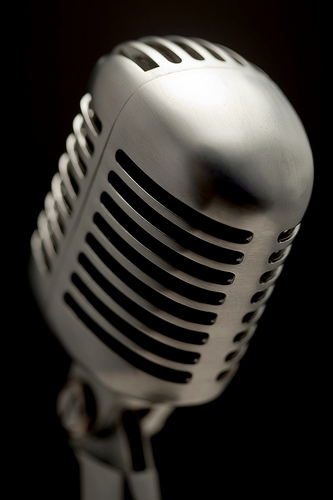Why has the podcast stalled in the imagination and daily lives of the digerati? Podcasting began a decade ago but really took off in 2004 and 2005. Since then the uptake in podcast listening seems to have leveled off. Why is that?
There are two kinds of podcast: re-purposed content from elsewhere (eg. NPR, BBC, etc) and unique content created only to be delivered in podcast form. The quality of content from professional radio creators is, as you would expect, excellent both technically and in content value. The more niche podcasts are much more hit and miss (much more miss than hit, unfortunately). This is largely due to one podcast personality (who shall remain nameless) whose format was (and is) to get two or three people talking for an hour or so on a particular topic with the loosest of planned structure, and smallest amount of preparation possible. He takes that recording that no one seems to edit except to put some jingle music and adverts on the beginning and end, and then he releases it. A stable of these shows has been created and the formula has often been repeated but does it work?
Unless you’re as quick witted as Stephen Merchant and Ricky Gervais, no it doesn’t. The amount of content these shows have is about 10 minutes to the hour (I’m being generous). The rest is self-serving waffle, padding, filler and, most annoyingly, misinformation and conjecture. What is the difference between good content and bad? Good content is actually produced. A producer does not just hit record and stop and monitor mic levels. A producer hones and researches a story; they oversee its production and make sure it is edited as tightly as possible and they review and revise a story or show until it is finished. If you don’t do this for your podcast you are just releasing raw data. A photographer rarely shows their audience unedited pictures; a filmmaker would not release a film without editing his source material, so why is unedited audio acceptable? I understand the notion that podcasting was to be ‘guerrilla’ and as far removed from Clear Channel radio as possible but this now seems to have degenerated into an excuse for laziness and could be the largest contributing factor for podcasts not affiliated with radio or TV shows, not going more mainstream.
Don’t look to the worst example of commercial radio production and compare your show to that; look to the best. You want more listeners? Your biggest competition is not your peer’s podcast on the same subject it is This American Life, Freakonomics and The Radio 4 Comedy of the Week. If you’re making a podcast about photography you will mine the potential podcast audience among geek photographers very quickly. The novelty of hearing people talking about photography on the ‘wireless’ will take only take you so far.
How many times have you heard on a podcast ‘Oh, we’ll edit that out later’? Did they leave it in to be cute (it’s not) or because they didn’t edit their own work? The same goes for people answering the door or their cell phone ringing during a ‘show’. And these are just the most obvious examples. People often start to answer a question one way and then they stop and start again. Why not cut out the false start? It makes your show tighter and more professional and it makes your guest sound smarter (which is good for both of you). Most people who aren’t professional presenters also have verbal ticks, I know I do. They’re the ‘errs’, ‘you know’, ‘sort of’, etc. filler that people often use when they’re thinking but don’t want to leave a silence in their sentence. Your guest will sound smarter and less annoying if you remove at least some of these. Once you get tuned in to these verbal ticks it is hard to hear anything else.
Your podcast doesn’t need to be as well edited as Radiolab but it doesn’t hurt to try to up your game. If you want your podcast to be taken seriously then treat it’s production seriously. Production doesn’t end when the director yells ‘Cut!’ or when a photographer trips the shutter. Your podcast isn’t done as soon as you stop the recorder rolling.

